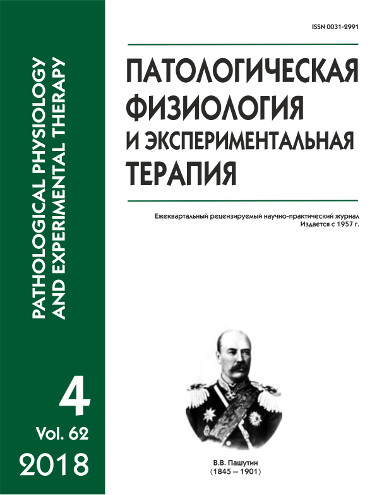The effect of intranasal administration of glutamate antibody on experimental parkinsonian syndrome
DOI:
https://doi.org/10.25557/0031-2991.2018.04.250-253Keywords:
Parkinson’s disease, parkinsonian syndrome, antibodies to glutamate, autoantibodies to glutamate, MPTP, C57Bl miceAbstract
Effects of two schedules of intranasal treatment with glutamate antibody (AT-Glu) on 1-methyl-4-phenyl-1,2,3,6-tetrahydropyridine (MPTP)-induced parkinsonian syndrome (PS) were studied in C57BL/6j mice. Intranasal AT-Glu administration along with MPTP administration for 10 days attenuated the development of parkinsonian symptoms, oligokinesia and rigidity. The serum of mice treated with AT-Glu and / or MPTP contained a greater amount of glutamate autoantibody than the serum of control animals. A single intranasal administration of AT-Glu on day 11 to C57BL/6j mice with developed PS did not influence the severity of parkinsonian symptoms.Published
2018-11-21
Issue
Section
Brief Reports
How to Cite
[1]
2018. The effect of intranasal administration of glutamate antibody on experimental parkinsonian syndrome. Patologicheskaya Fiziologiya i Eksperimental’naya Terapiya (Pathological physiology and experimental therapy). 62, 4 (Nov. 2018), 250–253. DOI:https://doi.org/10.25557/0031-2991.2018.04.250-253.






